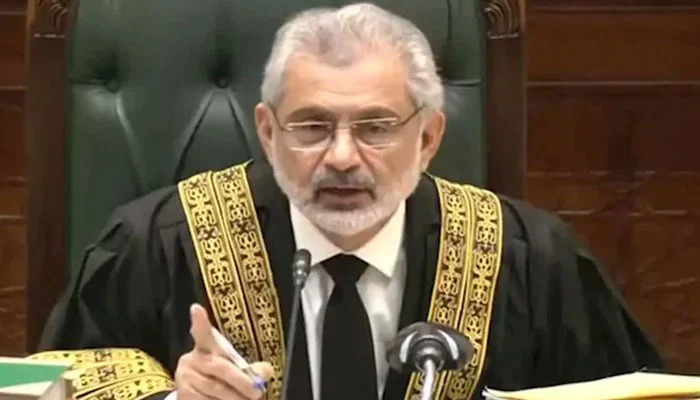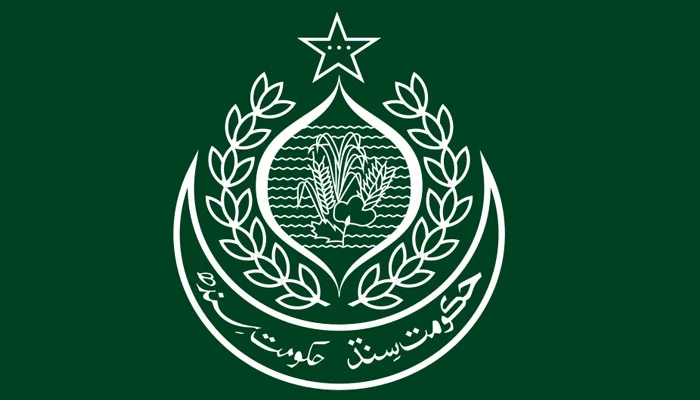In a significant development related to the Faizabad sit-in case in Pakistan, Chief Justice of Pakistan, Justice Gulzar Ahmed, raised critical questions regarding the legitimacy of the sit-in and the government’s funding committee. During the hearing, Chief Justice Gulzar Ahmed expressed his concerns and sought clarity on various aspects of the case, shedding light on some of the intricate details surrounding this contentious issue.
One of the key issues addressed by the Chief Justice was the identity of the ‘mastermind’ behind the Faizabad sit-in and who was pulling the strings. This question underscores the need for transparency and accountability in understanding the motives and key figures involved in the sit-in. This inquiry brings to light the intricate web of factors that contribute to political demonstrations and protests in the country.
Chief Justice Gulzar Ahmed also took issue with the funding committee established by the government. He questioned the legality of this committee and its operations. The involvement of such a committee in funding and supporting any political activity raises concerns about the transparency of finances and resources used in protests and public gatherings.
A significant revelation during the hearing was the Election Commission’s assertion that the Tehreek-e-Labbaik Pakistan (TLP), the religious political party behind the Faizabad sit-in, received ordinary funding of 1.5 million rupees. The rapid registration of this organization overnight raises eyebrows about the procedures and regulations regarding the formation of political entities in Pakistan.
Chief Justice Gulzar Ahmed’s probing questions highlight the need for a comprehensive and transparent understanding of the Faizabad sit-in’s objectives. While the sit-in ostensibly aimed to express opinions and concerns, it is essential to delve deeper into the motives and interests that may have influenced the events at Faizabad. In addition, the Chief Justice’s comments underline the importance of ensuring that public protests adhere to the principles of law and the constitution.
Another aspect discussed during the hearing was the alleged involvement of certain individuals from the military establishment in these events. Chief Justice Gulzar Ahmed mentioned that there were strong allegations regarding a military officer seeking a forceful course of action. The Chief Justice’s inquiry reflects the need for a comprehensive investigation into these claims, emphasizing the importance of upholding democratic norms and the rule of law.
The Chief Justice’s remarks extended to addressing the broader issue of democracy and constitutional principles. He emphasized the importance of holding those who violate the law and infringe upon democratic principles accountable. This perspective highlights the delicate balance required to maintain democratic norms and uphold the rule of law, especially in situations involving protests and political movements.
Furthermore, the involvement of foreign nationals and their role in the Faizabad sit-in raises questions about the extent of their participation and the circumstances under which they arrived in Pakistan. The Chief Justice questioned whether the Canadian government was approached for an investigation into these individuals’ activities, highlighting the potential legal and diplomatic implications of such involvement.
The Chief Justice’s comments regarding the financial losses incurred during the Faizabad sit-in, juxtaposed with the government’s seemingly nonchalant attitude, underscores the need for proper checks and balances in managing public demonstrations. The lack of clarity surrounding the inquiry and the absence of specific terms and conditions in the terms of reference for the committee further complicate matters.
Chief Justice Gulzar Ahmed’s questions and remarks during the Faizabad sit-in case hearing underscore the intricate nature of this contentious issue. His call for transparency, accountability, and adherence to democratic principles is a vital step in addressing the complex dynamics surrounding public protests and political movements in Pakistan. The Faizabad sit-in case remains a focal point for discussions on democracy, accountability, and constitutional principles, highlighting the challenges faced by the country in upholding these fundamental values.
The Supreme Court of Pakistan recently found itself in the midst of a perplexing situation during proceedings that involved the Pakistan Electronic Media Regulatory Authority (PEMRA). The hearings included discussions about the contents of an affidavit submitted by Absar Alam, former Chairman of PEMRA, as well as the mysterious disappearance of key documents.
At the center of the controversy was the question of what exactly the committee, tasked with conducting inquiries, was investigating. Chief Justice of Pakistan, Gulzar Ahmed, sought clarification on the Cabinet’s approval for this committee and the legal framework under which it was established. The Chief Justice emphasized that the committee’s legal status seemed to be a mere piece of paper and could not govern the entire nation.
The proceedings raised questions about the potential refusal of individuals like Absar Alam to appear before the committee. Chief Justice Gulzar Ahmed pointed out that if the committee had been formed under the Inquiry Commission Act, it might have had more authority to compel individuals to testify. However, the government had not taken any action on this matter.
The Attorney General asserted that a new commission would be formed under the Inquiry Commission Act, implying that the government was committed to pursuing the matter. Chief Justice Gulzar Ahmed emphasized the necessity of obtaining federal government approval for the commission’s formation.
One of the key highlights of the hearing was the discussion on the supremacy of the Constitution. Chief Justice Gulzar Ahmed stated that all issues must be resolved within the framework of the Constitution. The case related to the Faizabad sit-in protest was described as a historic decision.
The Supreme Court expressed its reservations about the government’s handling of the fake funding committee. The Chief Justice asked whether the government had made contact with the Canadian government regarding the murder of Sikh leader Zafar Qadri and whether it had informed them about the situation.
The Chief Justice inquired if a person from Canada could come to Pakistan and disrupt the whole country. The government representative clarified that they could not do so. However, Chief Justice Gulzar Ahmed pointed out that someone from Canada could potentially create chaos in Pakistan. He questioned why Zafar Qadri did not stay in Canada if he felt that his life was at risk. The incident on Canadian soil could potentially strain relations between the two nations and tarnish the image of both the country and the religion of Islam. He urged that Pakistanis should not be afraid of those who aim to discredit their country and faith.
The Chief Justice made it clear that until the country operated under the Constitution, the people’s issues could not be resolved. He also criticized the government for failing to take action on the decisions of the Supreme Court.
Regarding the Faizabad sit-in case, Chief Justice Gulzar Ahmed mentioned that the reference against Zulfiqar Ali Bhutto was still pending in the Supreme Court. He expressed his concern about the state’s tendency to place a Prime Minister on the scaffold. He inquired if anyone was aware of what the law stated regarding the withdrawal of references once initiated.
To further complicate the hearing, the issue of absences from court was raised. Chief Justice Gulzar Ahmed asked whether the former Chairman of PEMRA had ever left the court when an affidavit was being read. The former PEMRA Chairman, Absar Alam, explained that he had just received Absar Alam’s affidavit.
After a recess, the Chairman of PEMRA, Saleem Baig, appeared before the court. The Chief Justice inquired whether Saleem Baig had read Absar Alam’s affidavit. In response, Saleem Baig claimed that he was unaware of the specifics of the contents in the affidavit.
Chief Justice Gulzar Ahmed questioned if Saleem Baig had read the contents personally, but Saleem Baig replied that he had only taken a cursory look at the document.
The hearings revealed a complex situation surrounding the PEMRA case, the missing documents, and the role of the committee tasked with conducting inquiries. The legal and constitutional dimensions of these issues raise significant questions, underscoring the need for a more coherent and transparent process. While the proceedings left many questions unanswered, they shed light on the challenges Pakistan’s legal and regulatory bodies face when addressing such complex and high-profile cases.



